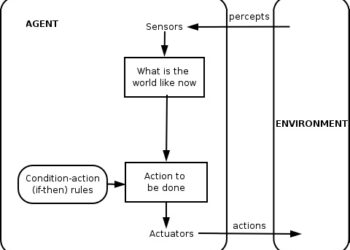Select Language:
Google is preparing for its annual developer conference, Google I/O 2025, set for May 20 and 21. Similar to last year’s event, we can expect several announcements related to AI, including updates on Gemini, AI agents, Android XR, and more. In this article, we’ve rounded up the most eagerly awaited features and announcements that are likely to take center stage at I/O 2025. Let’s dive into the details.
Gemini AI
During I/O 2025, Google is anticipated to introduce two new subscription tiers: Gemini Pro and Gemini Ultra. Recent findings suggest that code for both plans has been uncovered, hinting at expanded usage limits for video generation and other functionalities. Currently, Google offers only the Gemini Advanced version, which is priced at $20 monthly.
Additionally, rumors indicate a powerful new Gemini Ultra model might be introduced. The Ultra series has been dormant since the release of Gemini 1.0 Ultra, and the latest model, Gemini 2.5 Pro, is currently the peak of Google’s AI capabilities, available to both Advanced subscribers and free users, albeit with a usage cap.
Furthermore, attendees might see the unveiling of three new AI models: Veo 3, Imagen 4, and Imagen 4 Ultra. Veo 3 is expected to succeed the highly regarded Veo 2, while Imagen 4 and its Ultra variant will be updated successors to Imagen 3, Google’s leading image generation model.
Google’s AI Agent
At Google I/O 2025, the tech giant may finally debut an AI agent tailored for consumers. Google previously teased Project Mariner in December 2024, designed to handle tasks in the Chrome browser, akin to OpenAI’s Operator AI agent. However, the early version was reported to be somewhat sluggish and inaccurate. After five months, Project Mariner could be ready for broader release.
Interestingly, some users on X have spotted references to a feature called ‘Computer Use,’ enabling Gemini to access browser capabilities, execute code, and interact with the file system. This functionality appears to be geared toward enterprise users for running AI agents in virtual desktop settings. Google has been touting 2025 as the dawn of the agentic AI era, setting expectations for powerful new AI agents at this year’s event.
Additional Enhancements for Gemini
While Gemini already personalizes interactions based on an individual’s search history, I/O 2025 might see the incorporation of memory features and custom instructions. Leaked information suggests that a new feature called “Personal Context” will allow users to specify their preferences and share personal details for a more tailored experience.
In addition, support for memory will enable Gemini to retain critical information from conversations, fostering a long-term understanding of users’ preferences and interactions.
Moreover, users may soon be able to upload files and images while engaging with the Deep Research AI agent on Gemini. Developers might also enjoy the ability to upload entire folders of code or leverage GitHub integration for seamless migration of their codebases to Gemini. Google is exploring the option of allowing users to share custom “Gemini Gems,” similar to custom GPTs found in ChatGPT.
There are also indications that Gemini will integrate directly into the Chrome browser. Recent leaks suggest it will appear in the Windows system tray, accessible via a keyboard shortcut. Additionally, users should be able to download the NotebookLM app for their smartphones, which will be available starting May 20.
Android XR
At I/O 2025, Google plans to showcase its Android XR mixed-reality operating system, designed to compete with products like the Apple Vision Pro and Meta Quest headsets. Samsung has already announced its Android XR headset, ‘Project Moohan,’ set to launch this year. Remarkably, Google might unveil its own smart glasses powered by the Android XR platform and Gemini AI.
These smart glasses are designed to be lightweight and appear conventional while deeply integrating Gemini for a conversational experience. They boast vision capabilities, enabling contextual tasks on the go, effectively enhancing user experiences in immersive environments.
Additionally, Google recently unveiled its bold new design language, ‘Material 3 Expressive,’ alongside Android 16, marking the first time it held a dedicated Android event before I/O. The company has also stated that Gemini will be integrated into WearOS, Android Auto, Google TV, and the Android XR platforms.







